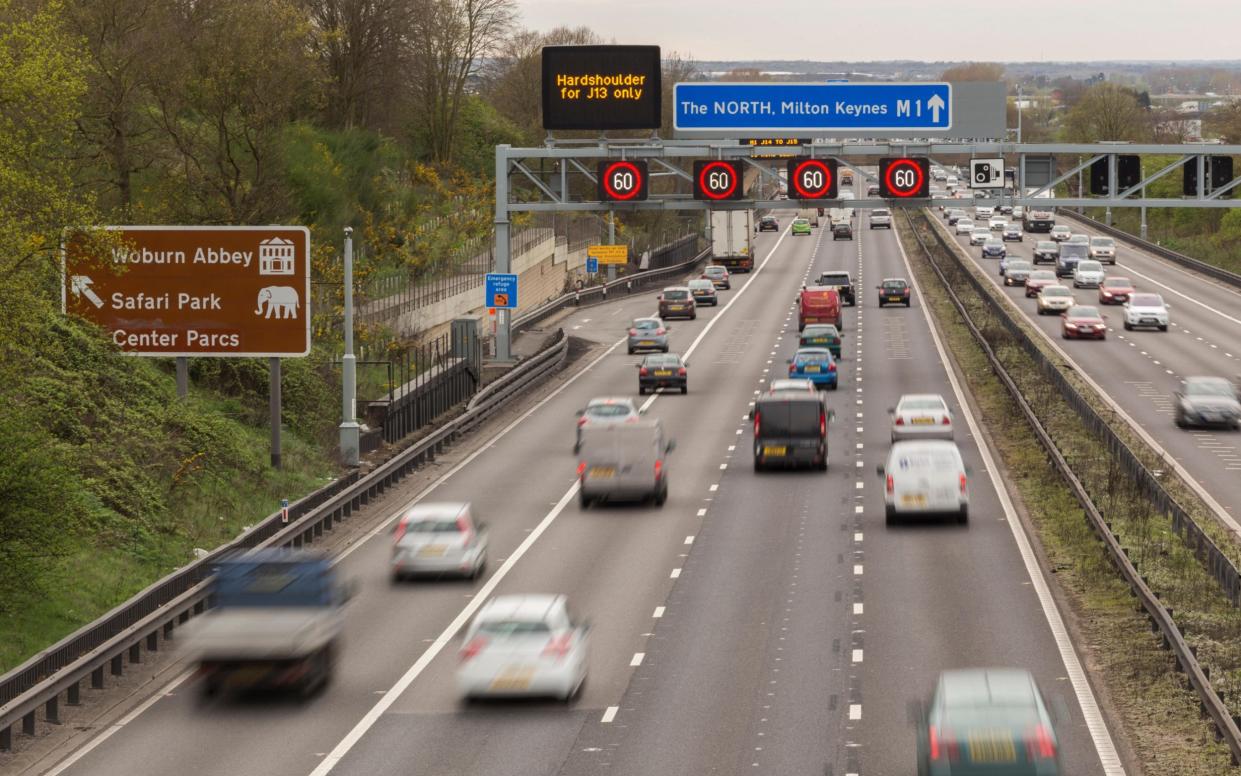Six-car pile up on smart motorway while entire safety system shut down

The smart motorways computer safety system shut down across the country, leading to a “terrifying” six-car pile up after a vehicle broke down in a live lane, The Telegraph can reveal.
A whistleblower has told how National Highways’ systems “crashed”, which disabled radar technology that detects stranded vehicles, leaving control room staff unable to close lanes to traffic, set speed limits and electronic signs or use CCTV cameras.
The “catastrophic failure” culminated in a pile-up on the southbound M6 on Jan 19 when a car was left a “sitting duck” after breaking down on the inside lane, which used to be a hard shoulder.
The vehicle failed to reach an emergency refuge area on the “all lane running” stretch of the motorway before being hit repeatedly by other vehicles between junctions 3a and 3 near Coventry.
The National Highways whistleblower, speaking on condition of anonymity, said: “We had no stopped vehicle detection systems, no CCTV and no control of signals and signs.
“The fact no one was killed is pure luck.
“Thankfully, God was watching over them, because we certainly weren’t.”
Outage lasted three hours
A National Highways spokesman said the “unplanned outage” lasted three hours, with the six-car collision resulting in only “minor injuries”.
This latest system failure and subsequent multiple collisions would not have come to light without the whistleblower risked contacting The Telegraph.
The Dynac software, which controls gantry signs and signals – including the “red X” which closes lanes to traffic – as well as the stopped vehicle detection radar, shut down between 5.25pm and 8.30pm.
Control centres in the North West, Yorkshire and North East, West Midlands, East Midlands and South West went offline, leaving only the South East and East operational.
In 2021, The Telegraph revealed how Dynac had been nicknamed “Die Now” by staff because it was “prone” to bugs and shut-downs.
Claire Mercer, who has campaigned for the Government to scrap all smart motorways after her husband, Jason, died on the M1 in 2019, said it was only a matter of time before numerous lives were lost in a single “preventable tragedy”.
She said: “How many more terrifying systems failures and live lane breakdowns are taking place that we do not hear about?
“National Highways tells motorists to move left in an emergency. But, this driver on the M6 moved as far left as possible, but was left like a sitting duck because there was no hard shoulder.
“That technology failure meant a breakdown became a mass pile-up. When Dynac and its safety systems fail, smart motorways become dumb motorways.”
‘All smart motorways should be scrapped’
Mrs Mercer, 47, added that Rishi Sunak, the Prime Minister, had “lacked the nerve” in 2023 to scrap all smart motorways when he halted the rollout of new ones.
“Was it the revenue from fines they generate, or the big contracts that go to private contractors to build them that meant he stopped short of scrapping all smart motorways,” she asked.
Fourteen planned smart motorways – including 11 which were already paused and three earmarked for construction – were removed from government road-building plans by the Government last year. However, ministers refused to reinstate the hard shoulder on all routes, which would effectively scrap the smart motorway project.
Edmund King, the president of AA, said: “As we have been warning for years, this smart motorway experiment has failed yet again putting lives at risk by leaving car occupants as sitting ducks.
“Drivers have never trusted the system, so scrapping all smart motorways is likely to be a big election issue.”
The National Highways spokesman added: “As with any technology, there are occasional planned and unplanned outages and so we have well-rehearsed procedures to deal with issues which arise.
“We have additional measures to limit any impact on drivers or traffic flow, including increased patrolling by our traffic officers and active monitoring of CCTV.”
Systems prone to repeated ‘power outages’
In January, The Telegraph revealed how Dynac and other motorway safety systems are prone to repeated “power outages”.
The network’s computers suffered electricity supply problems lasting 541 hours across 52 separate days at numerous locations in the Summer 2023.
Eight of those power outages took more than 24 hours to resolve, with one lasting four days and 22 hours on the M6, near Junction 18 in Cheshire.
A Department for Transport spokesman said: “Drivers deserve to have confidence in the roads they use and, recognising public concerns, the Government has cancelled plans for all new smart motorway schemes.
“Working with National Highways, we continue to invest £900 million in further safety improvements on existing smart motorways.”
Simon Williams, the RAC’s head of policy, said: “It’s frightening to see just how fragile our so-called smart motorways are. When lives depend on technology there should be fail-safes in place to prevent this kind of incident from happening.
“This proves that safety technology and emergency refuge areas can never replace the hard shoulder. We once again urge the Government to act before it’s too late.”

 Yahoo News
Yahoo News 
